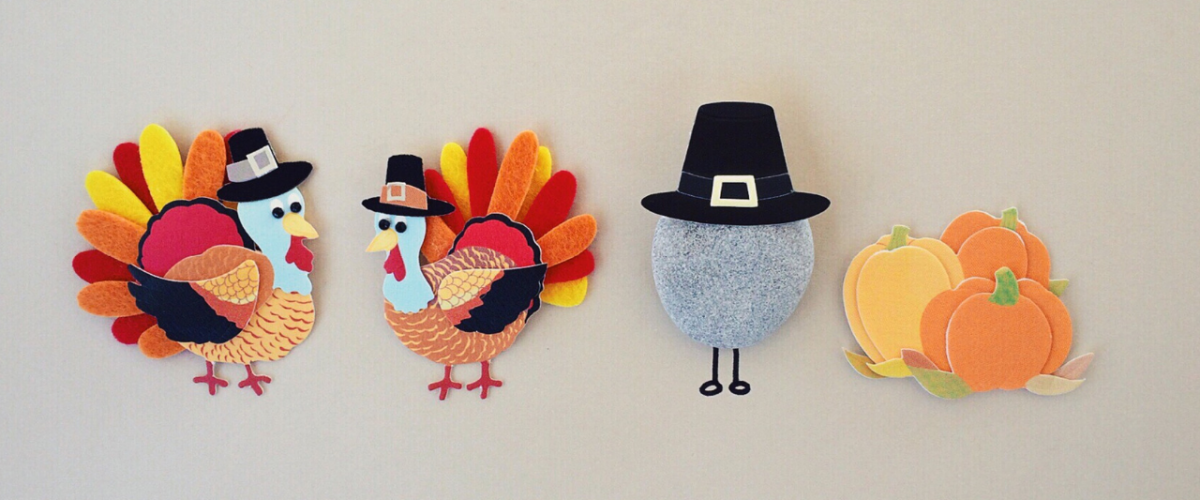Thanksgiving is almost here, and that means two things: 1) time spent with family and friends around the television watching football, and 2) eating turkey. Lots and lots of turkey. At this time of year, we often overindulge and loosen our belt and wonder how we fit all that stuffing and gravy into our stomach. Don't worry. We asked leading health experts from the University of Colorado Anschutz Medical Campus a few of the Thanksgiving questions you've always wanted to know the answer to.
Mom's turkey is legendary! Could I end up blowing a hole in my stomach by devouring too much turkey?

We've all been there. The awkward stares around the table as Uncle John says, "Who is going in for the last piece of that delicious bird?" You may wonder if it's possible to overeat at your Thanksgiving meal to the point of health complications. "Thankfully the stomach has a thick muscular lining that makes it very resistant to stretch and pressure, so a perforated stomach is not really a concern on Thanksgiving Day," says Paul Menard-Katcher, MD, assistant professor in the Division of Gastroenterology & Hepatology in the CU School of Medicine. "Unless you swallow a sharp turkey bone, so don’t do that," he adds.
My grandma Betty makes her famous Thanksgiving casserole four weeks in advance and brags on how it keeps in the freezer. Needless to say, I'll be passing on it this year. Is there any actual evidence that frozen food offers less nutritional value than freshly cooked food?
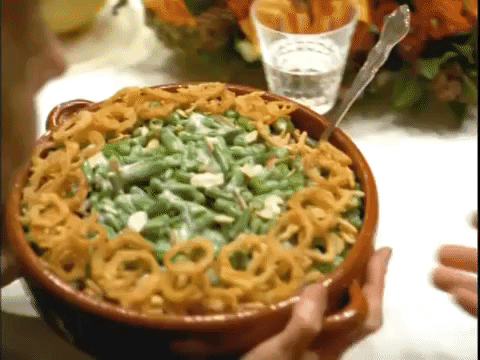
"There is very little nutritional value lost from freezing food in general, and food can be frozen for long periods of time which is one of the advantages of freezing," says Marsha Miller, MS, RD, at the CU Anschutz Health and Wellness Center. The USDA recommends freezing food as quickly as possible to maintain quality. When it comes to thawing, it's actually the opposite. Turkeys may take days to safely thaw in your refrigerator, approximately one day for every five pounds of weight.
Is it the turkey that leads to Aunt Judy passed out cold on the reclining chair after our meal?
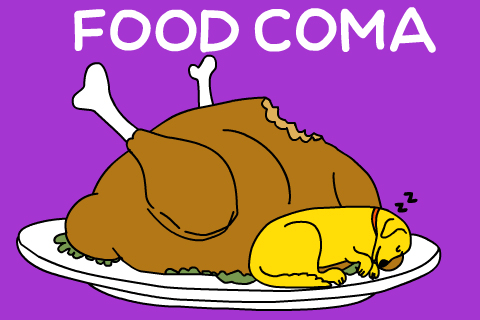
This one is as old as Thanksgiving itself. Turkey contains an amino acid called tryptophan that makes you sleepy, right? Wrong. "Turkey contains no more tryptophan than other foods and actually less than chicken!" says Cristina Rebellon, RD, at the CU Anschutz Health and Wellness Center. "So, it’s likely not the turkey that’s the culprit but the high food and alcohol intake," she adds.
If it were socially acceptable, I would drink right from the gravy boat. How much gravy is too much?

Gravy is the ultimate side at any Thanksgiving dinner. It helps the meal slide right down in all its sodium glory. However, Sarah Funk, RD, in the Division of Gastroenterology says it's best to take it easy. "Gravy should be added to the meat for added flavor and moisture. If there is more gravy than meat, there’s probably too much gravy," says Funk.
I've been told sweet potatoes are a healthier choice than white potatoes. Is that true?
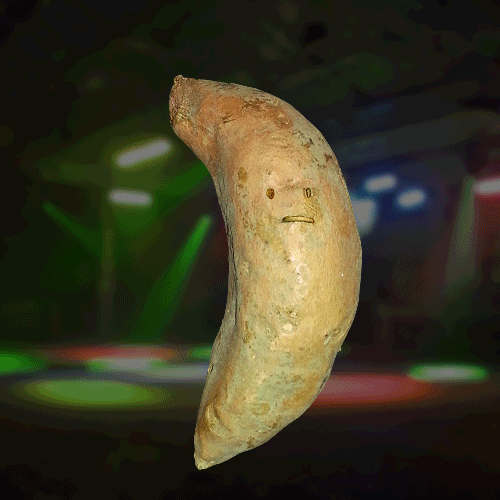
Remember when your mom would tell you to eat all those colorful vegetables growing up? Maybe there is some truth to that. "Sweet potatoes and white potatoes have different nutrients. Sweet potatoes have more fiber (about 2 more grams more than white) and contain Vitamin A, while white potatoes don’t contain vitamin A but do contain more Vitamin C," says Sarah Funk, RD, in the Division of Gastroenterology. "Include a variety of colors from fruits and vegetables — all in order to receive a variety of nutrients," she adds.
I've heard cranberries are good for you and even prevent cancer and heart attacks. Should I load up on Thanksgiving?
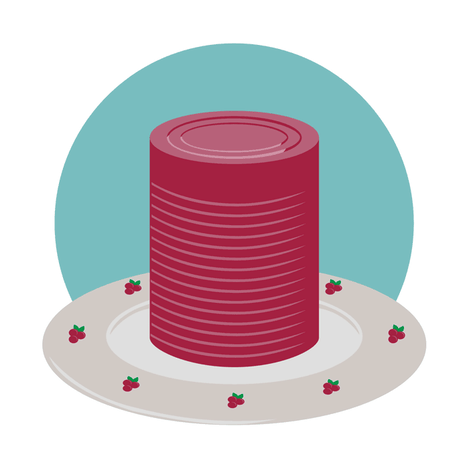
Cranberries are commonly referred to as a superfood for their antioxidants and are rumored to help with all kinds of medical conditions from urinary tract infections to diabetes. But is that legit? "There is insufficient reliable evidence to support cranberry has any positive impact in the prevention of cancer and cardiovascular disease," says Joseph Saseen, PharmD, at the CU School of Pharmacy. "Watch out for cranberry sauces and jellies. One typical serving (about half of an inch of the canned product) contains 86 calories and 22 grams of sugar," he adds. I can already feel my blood sugar spiking!
I’ve heard that eating turkey without the skin is better for me. Is that true?
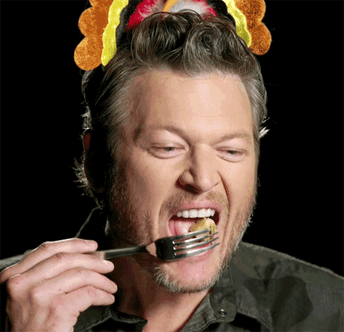
There are few things better in the world than lightly crisped turkey skin, but you may want to think again this year. "In a 3.5 oz portion of turkey breast, there’s almost double the amount of fat when the skin is left on versus if it is removed," says Marsha Miller, MS, RD, at the CU Anschutz Health and Wellness Center. "If you’re looking for ways to reduce the calories in the meal, this is certainly one easy way to do it," she said.
What tips would you give someone who wants to eat healthy during Thanksgiving?
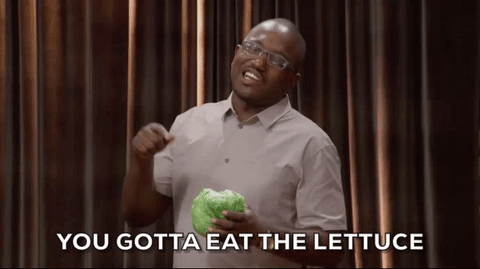
This is the toughest time of the year to eat healthy. But there are things you can do to make your holiday less punishing on your body. Experts say a common mistake is not eating all day. "A big mistake people tend to make is to eat very little or nothing at all the whole day of Thanksgiving which often leads to overeating during the big meal," says Cristina Rebellon, RD, at the CU Anschutz Health and Wellness Center. She recommends eating as you normally would and stay well hydrated. This will put you in a good position to not overeat.
How can the Thanksgiving cook make the meal healthier by substituting or preparing the meal in a different way?
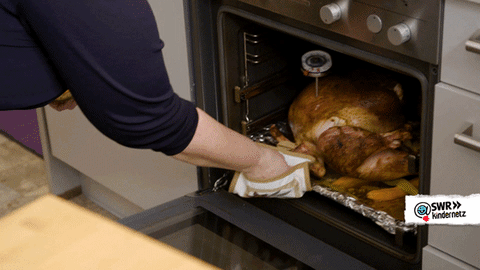
- Choose skim milk or 1 percent milk instead of cream or half-and-half.
- Start with adding a smaller amount of fat and add as needed for taste.
- To reduce added salt, season with herbs and spices and use low-salt broth or bouillon cubes.
- Grill or bake instead of frying foods.
- Try a fruit-based dessert. Substitute applesauce and yogurts for added butter and oils.
- Leave sauces or dressings on the side to allow diners to choose how much of the higher-calorie items they want.
- Offer up sparkling water or other low-calories drinks to help ease the calorie load for the meal.
Happy Thanksgiving to all from the CU Anschutz Medical Campus. With a little preparation and a lot of self-control you can have a healthy and enjoyable holiday surrounded by family and friends.
